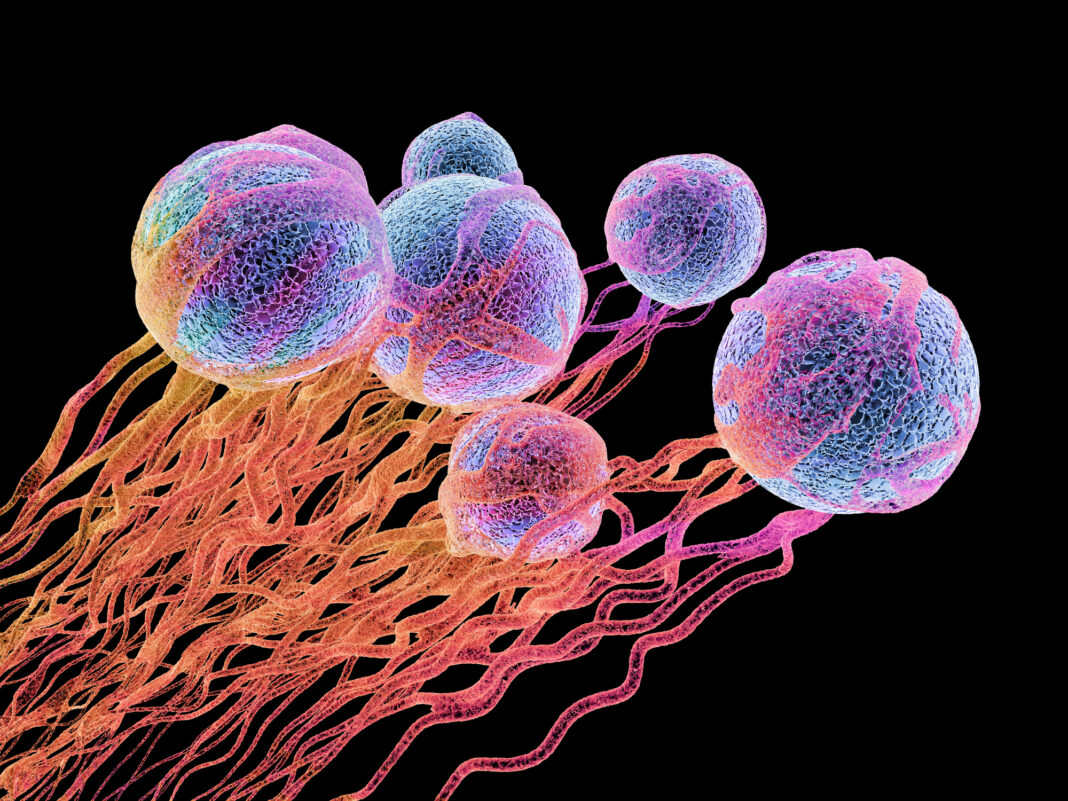In a preclinical study, researchers led by City of Hope have discovered that a type of immune cell in the human body, known to be important for allergy and other immune responses, can also attack cancer. The cells, called human type 2 innate lymphoid cells (ILC2s), can be expanded outside of the body and applied in larger numbers to overpower a tumor’s defenses and eliminate malignant cells in mouse models with cancer. The findings are published in in an article titled, “ .
” “The City of Hope team has identified human ILC2 cells as a new member of the cell family capable of directly killing all types of cancers, including blood cancers and solid tumors,” said Jianhua Yu, PhD, a professor in the department of hematology and hematopoietic cell transplantation at City of Hope and the study’s senior author. “In the future, these cells could be manufactured, preserved by freezing, and then administered to patients. Unlike T cell-based therapies, such as CAR T cells, which necessitate using the patient’s own cells due to their specific characteristics, ILC2s might be sourced from healthy donors, presenting a distinct potential therapeutic approach as an allogeneic and ‘off-the-shelf’ product.
” In previous research focused on mouse cells, ILC2s had not consistently shown promise when tested for their cancer-killing abilities. However, the City of Hope researchers discovered that human ILC2s do not work the same as mouse ILC2s. “Typically, mice are reliable models for predicting human immunity, so it was a real surprise in the field to find that human ILC2s function as direct cancer killers while their mouse counterparts do not,” said Michael Caligiuri, MD, who is a co-senior author of the study and also a City of Hope professor in the department of hematology and hematopoietic cell transplantation.
“It is remarkable that something has evolved so distinctly in going from mouse to human. ” To test human ILC2s, Yu and the team first isolated the cells from a blood sample. Then, they developed a novel platform, which in four weeks can expand ILC2s 2,000-fold from those harvested in the body.
They next injected these ex vivo expanded ILC2s into mice engrafted with human acute myeloid leukemia (AML) or solid tumors, including pancreatic cancer, lung cancer, and glioblastoma. The results showed that this ILC2 population could kill these tumors via a previously unknown cancer-killing mechanism. “One convincing and direct piece of evidence appeared when we placed one ILC2 and one tumor cell directly together and found that the tumor cell died, but the ILC2 cell survived,” explained Yu.
“This proves that the ILC2s directly killed the cancer cell in the absence of any other cell. ” Yu noted that the ILC2s do not need to come from the cancer patient’s own cells, suggesting that there may be the possibility of harvesting and freezing ILC2s from healthy donors for ILC2 treatment options in the future. “We aim to really expand the applications of these findings, potentially beyond cancer treatments,” Yu said, noting that ILC2s may even work against viruses, such as .
“Additionally, we are working towards translating our discovery into tangible clinical benefits. ”.
From: genengnews
URL: https://www.genengnews.com/topics/cancer/an-immune-cell-that-can-attack-cancer-may-lead-to-a-new-type-of-immunotherapy/



